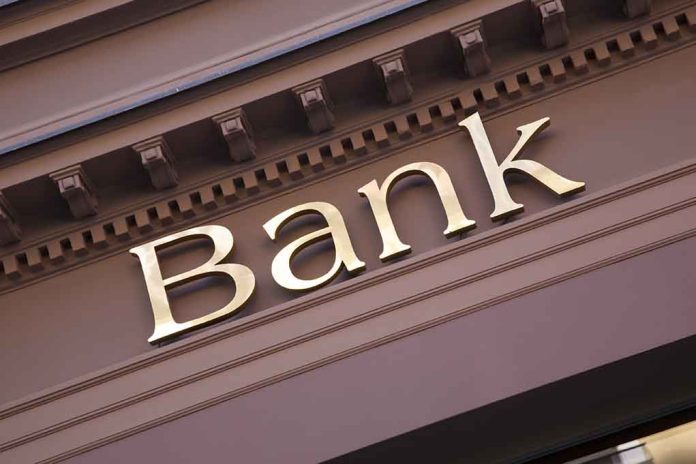
The U.S. Justice Department delves into whether major banks colluded during the collapse of Archegos Capital Management, leaving the financial world on edge.
At a Glance
- The Justice Department is investigating large banks for alleged collusion during the liquidation of Archegos Capital Management.
- Banks under investigation include Credit Suisse, Nomura Holdings, and UBS Group.
- The probe examines whether these banks conspired to control prices and minimize losses during Archegos’ liquidation.
- Bill Hwang, founder of Archegos, was convicted of fraud and faces up to 20 years in prison per charge.
Major Banks Under Scrutiny
The U.S. Justice Department is scrutinizing the actions of major banks like Credit Suisse, Nomura Holdings, and UBS Group in the aftermath of the collapse of Archegos Capital Management. Prosecutors are investigating whether these financial giants colluded during the firm’s liquidation to control asset prices and mitigate their losses. This inquiry falls under the Sherman Act, focusing on potential antitrust violations.
Bill Hwang, the founder of Archegos, had already been convicted of fraud and manipulating stock prices. Now, the spotlight has shifted to the banks that sustained massive losses due to Hwang’s risky strategies. The investigation aims to determine if these institutions coordinated their actions to protect themselves during the firm’s liquidation.
Justice Department probing banks for alleged collusion in $36B Archegos liquidation: report https://t.co/6RYu49vTfD pic.twitter.com/L5ZIKh5PHy
— New York Post (@nypost) September 17, 2024
Collapse of Archegos
Archegos employed a high-risk strategy known as “total return swaps” to leverage significant positions in a handful of stocks. At its peak, the firm managed $36 billion in assets with an exposure of $160 billion to equities. When stock prices fell, the banks demanded additional collateral from Archegos, which it could not provide. This led to the forced sale of stocks backing Hwang’s swaps, resulting in substantial losses.
“The Justice Department is investigating several large banks for allegedly colluding during the liquidation of convicted fraudster Bill Hwang’s ill-fated $36 billion investment firm Archegos Capital Management,” according to a report.
Possibilities of coordinated strategies among the banks could significantly affect Wall Street’s outlook on the administration’s approach to antitrust enforcement. Antitrust officials like Jonathan Kanter and Lina Khan have been noted for their aggressive stance, particularly against significant corporate entities.
Archegos Banks That Unwound Bets Face Criminal Antitrust Probe https://t.co/sCyk4rNx3N
— John Lothian (@JohnLothian) September 17, 2024
Broad Implications
The broader implications of this investigation touch upon the integrity of financial practices on Wall Street. If proven, the allegations could lead to severe penalties for the involved institutions and prompt a re-evaluation of regulatory approaches. The involvement of high-profile banks and the substantial financial impact accentuate the gravity of the situation.
“The US Justice Department is ramping up scrutiny of banks that collectively lost billions of dollars in the collapse of Bill Hwang’s investment firm,” according to a Bloomberg article. This increased oversight marks a significant move in the continual effort to uphold fair market practices and transparency within the financial sector.
The findings of this probe could reshape interactions and transactions in future financial dealings, ensuring that the competitive integrity of the markets is maintained. Stakeholders across various sectors keenly watch the situation.
Sources:
- Justice Department probing banks for alleged collusion in $36B Archegos liquidation: report
- Archegos Banks That Unwound Bets Face Criminal Antitrust Probe
- Archegos Banks That Unwound Bets Face Criminal Antitrust Probe
- DOJ Ramps Up Criminal Probe of Banks Hurt by Archegos
- Banks involved in Archegos meltdown face US probe
- The Archegos disaster isn’t over yet for banks as the feds reportedly revive criminal antitrust probe



